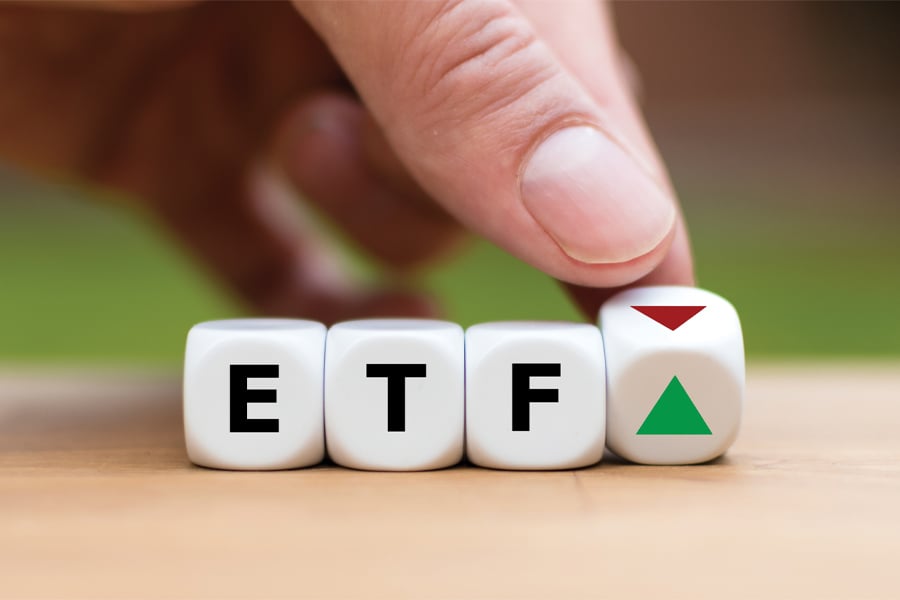

Assets in U.S. exchange-traded funds have climbed to a record, bouncing back from a sharp drop in the first half of the year, as investors abandon mutual funds for securities they perceive as cheaper and easier to trade.
Holdings across all categories reached $4.66 trillion Tuesday, according to data compiled by Bloomberg. The previous high occurred Feb. 19, before the coronavirus pandemic sent global markets swooning.
The rise in ETF holdings is being driven by more than just price appreciation. Assets are back to a record level at a time when the market value of S&P 500 constituents, at $27.25 trillion, is still about 3% away from the high it hit in February. The funds have recorded $248 billion in net inflows in 2020, up about 5% from this time last year, the Bloomberg data show.
“People continue to view the ETF vehicle as being very efficient,” said Nick Kalivas, senior equity ETF strategist at Invesco. “The liquidity, the different return-risk exposures which are present in the marketplace, the ability to diversify -- I think all of those things are a great way to invest when you’re in a time of trouble or uncertainty.”
Although ETFs began trading in the U.S. more than 25 years ago, they’ve soared in popularity in recent years, rising alongside the longest bull market in history. Assets have more than doubled since 2016.
Vanguard’s S&P 500 ETF (VOO) and State Street’s SPDR Gold Shares (GLD) have led inflows this year, with $21.2 billion and $19.8 billion respectively.
At the same time, mutual funds that track popular indexes had $34 billion in outflows in the first half of the year, the first-ever drawdown for a semi-annual period, losing to ETFs by the widest margin ever, according to Bloomberg Intelligence.
“You’ve seen ETFs again as the beneficiary on the back of this recent bout of market volatility and investors continuing to rotate out of mutual funds and into the ETF wrapper,” said Ben Slavin, head of ETFs for BNY Mellon Asset Servicing.

While industry statistics pointing to a succession crisis can cause alarm, advisor-owners should be free to consider a middle path between staying solo and catching the surging wave of M&A.

New joint research by T. Rowe Price, MIT, and Stanford University finds more diverse asset allocations among older participants.

With its asset pipeline bursting past $13 billion, Farther is looking to build more momentum with three new managing directors.

A Department of Labor proposal to scrap a regulatory provision under ERISA could create uncertainty for fiduciaries, the trade association argues.

"We continue to feel confident about our ability to capture 90%," LPL CEO Rich Steinmeier told analysts during the firm's 2nd quarter earnings call.
Orion's Tom Wilson on delivering coordinated, high-touch service in a world where returns alone no longer set you apart.
Barely a decade old, registered index-linked annuities have quickly surged in popularity, thanks to their unique blend of protection and growth potential—an appealing option for investors looking to chart a steadier course through today's choppy market waters, says Myles Lambert, Brighthouse Financial.
